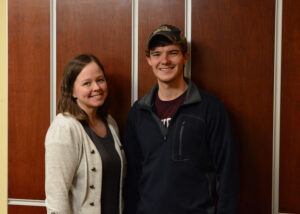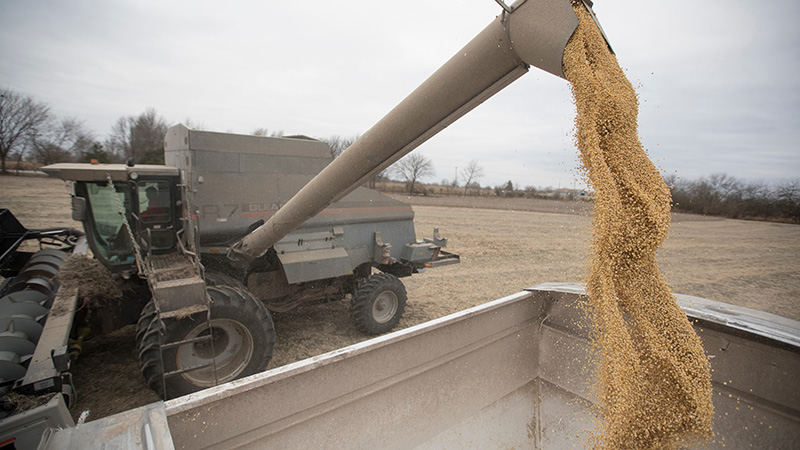There’s a crisis in American agriculture. The average age of today’s farmer continues to rise and more people are choosing not to work on their family farms.
It’s especially tough for beginning farmers in America to succeed in the industry. The hurdles range from securing land to getting financial credit and navigating government regulations.
Beginning farmers are individuals who have run a farm or ranch for 10 years or less. This can be as a sole operator or with others, according to the U.S. Department of Agriculture.
Exploring beginning farmers government programs

This issue intrigued Ben Travlos, a recent agriculture graduate from Missouri State University. So, for his graduate research project, he chose to look at available government programs to help beginning farmers and ranchers.
“My research focused on what the barriers are to program use and identifying possible solutions to those barriers,” said Travlos, a native of Ashland, Missouri. “The end goal is to better enable the next generation of American farmers.”
Talking to farmers
During his literature review, Travlos found a lot of information about the challenges beginning farmers faced. He also discovered there were many federal and state government programs created to help beginning farmers.
However, there was minimal research about the programs themselves and the barriers to program use. To gather that information, Travlos set up focus groups as advised by his instructors.
He connected with farmers across Missouri, both with those who used and didn’t use the programs. He also met with program administrators and experts who worked with beginning farmers and ranchers.
Thanks to the focus groups, Travlos identified time as one of the main barriers to program use.
“For a lot of these programs, it’s taking too long from the start of application until final approval,” Travlos said. “In some instances, it’s up to 15 months.”
Other barriers include:
- Low program awareness.
- Lack of program resources, especially the understaffing of program administrators.
- Requirements and eligibility that were too strict or confusing.
Check out MSU agriculture programs
Offering solutions
Despite the barriers, Travlos’s research showed the programs helped farmers who used them.
“A few farmers said, ‘If it wasn’t for the programs, I wouldn’t be farming today,’” Travlos shared. “Yes, there’s room for improvement. But there are also many success stories about these programs helping beginning farmers get their operations up and going.”
Travlos identified a few ideas to address the barriers. One is to create online applications for the programs to save time and resources. Another involves training groups of people to become more familiar with existing programs. These include university extension specialists and commercial lenders in rural areas.
Creating an impact
Travlos, who graduated this May, is already working with the Missouri Department of Agriculture. He hopes his research spurs more discussions among beginning farmers, academics and government officials.
He has started talking to federal and state officials about improving beginning farmers government programs. He’s also working with grassroots organizations such as the Missouri Farm Bureau to share his research findings.
“These groups can advocate in ways they know best and start brainstorming possible solutions,” Travlos said. “Through dialogue, I hope we’ll see changes and be able to reach the ultimate goal of better enabling the next generation of farmers.”

